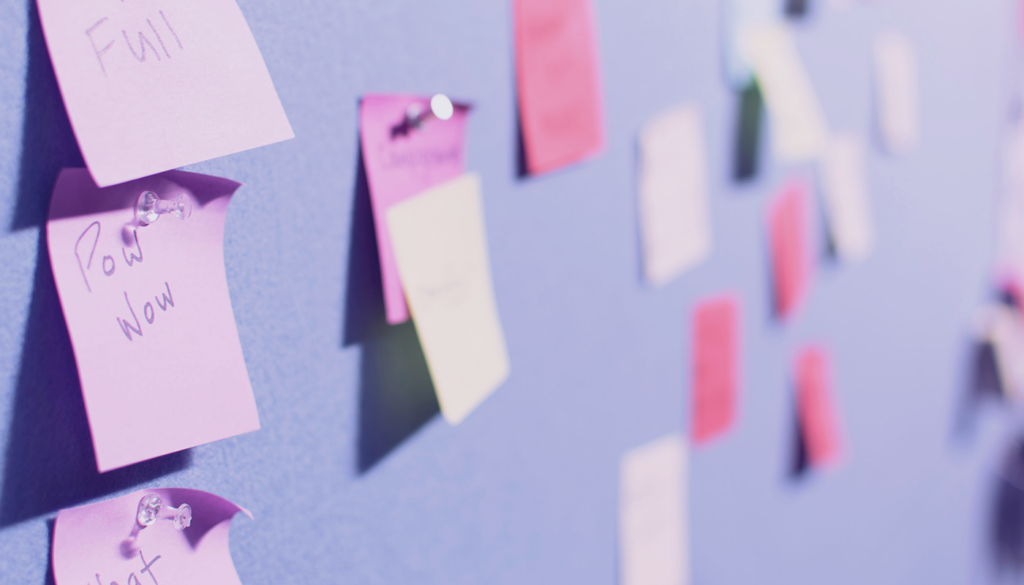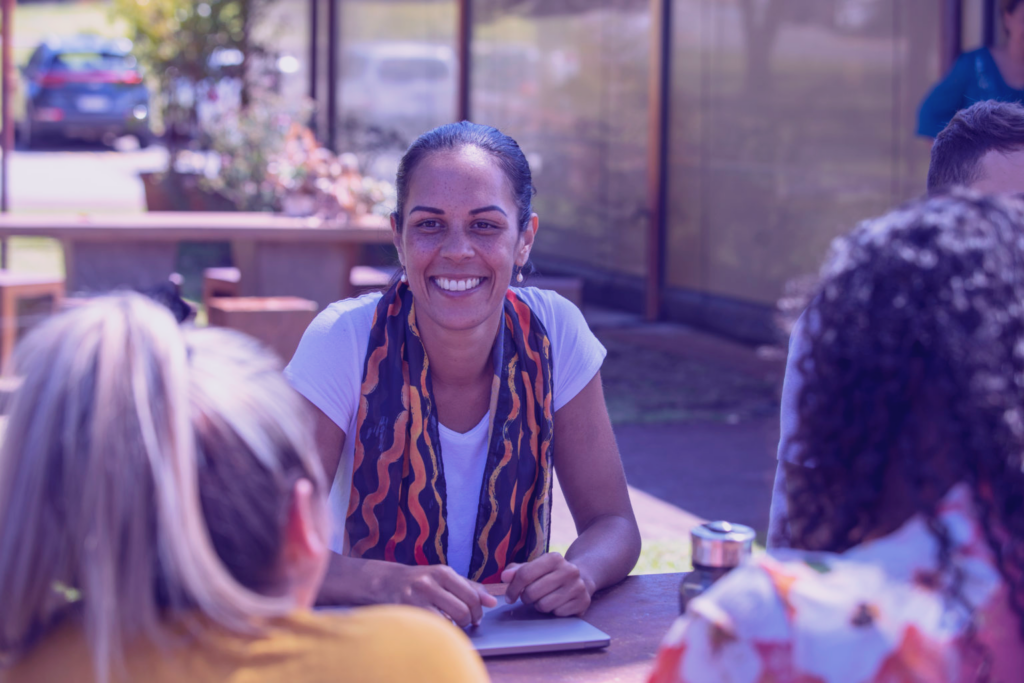The COVID-19 outbreak is disrupting nearly every industry and business size. For the hardest hit, we’ve seen an acceleration of companies shuttering their stores permanently; even industries witnessing a rise in demand, like home fitness and home improvement, are not immune.
Issues plaguing the global supply chain, combined with limited production teams due to social distancing requirements, mean that manufactures simply can’t keep up with demand. (All you have to do is visit your favorite electronics retailer and look for a digital microphone or webcam to understand what we mean.)
Companies of all sizes and industries, from Lazy Dog Restaurants to Google, are innovating to meet customer needs. While it’s true that much of what we’re experiencing today is outside our control, it’s also true that many early innovators chose optimism when pessimism was entirely justified, accepting responsibility for the elements within their control, and putting innovative plans into motion.
Today, we look back at five companies that sprung into action early in the pandemic, innovating their businesses while connecting with their communities and keeping their employees engaged. Let’s see how they fared.
1. Prada
Many fashion brands refused to sit still during the early social distancing mandates and lockdowns, choosing instead to do what was within their control to address the shortage of surgical face masks. At the start of the pandemic, Prada pledged to produce 80,000 medical overalls and 110,000 face masks for medical professionals in northern Italy, the country’s most affected region at the time.
Other brands also took part. Gucci promised to donate more than 1 million masks and more than 55,000 overalls, Zara donated hundreds of thousands of masks, and H&M Group committed to creating personal protective equipment for medical personnel.
Even individual designers got involved. Christian Siriano, winner of the fourth season of Project Runway, was one of the first to respond to New York Governor Andrew Cuomo’s call for assistance, and his team of tailors began producing thousands of FDA-approved masks each week. Los Angeles-based fashion designer Michael Costello, who has dressed Beyoncé for multiple performances and tours, also started personally producing surgical masks with two tailors in his downtown-LA atelier.
“I’m not looking for any fame, publicity, money,” Costello said. “At a time like this, I’m trying to force myself to be creative. Because if we can’t do what we love, let’s do what we can.”
How has Prada fared?: After dropping its lowest in five years on March 13, 2020, the stock has since recovered to January 2020 levels.*
2. CorePower Yoga
CorePower Yoga, the largest U.S. studio chain, temporarily closed all of its locations to support the health and safety of its instructors, students, and communities.
But just because this yoga powerhouse closed its doors, didn’t mean it stopped its services. To keep its employees and customers engaged, the company launched a digital yoga-on-demand model, providing more than 250 virtual classes — with more added weekly — that allow students to maintain their practice from the comfort of their own homes.
“We’ve made the difficult decision to temporarily close our studios,” said Niki Leondakis, CEO of Core Power, in a letter to her community. “Although this will be challenging for all of us, we are confident in the strength of this community and know we can get through this together…What’s important to remember right now is that our yoga practice is always there for us — wherever we are.”
How has Corepower Yoga fared? Inc.com reported the company’s 3-year growth is 180% (as of August 11, 2020).*
3. Cotton & Reed
Across the country, distilleries paused regular production of their spirits to focus on an entirely new product: hand sanitizer. In fact, the American Craft Spirit Association estimates that 75% of craft spirit producers began producing hand sanitizer in some capacity in response to COVID-19.
Cotton & Reed, a Washington, D.C.-based distillery, is among the pioneers leveraging the high-proof alcohol they have on premise for the greater good. “During a time like this, everybody’s trying to figure out what they can do to help, and this seemed like a good niche for us,” said Cotton & Reed founder Jordan Cotton.
While anyone who buys a bottle of rum from Cotton & Reed receives a free bottle of sanitizer, the company has been donating the vast majority of its supply to the local fire department, as well as a nonprofit that distributes groceries to laid-off bar and restaurant workers in the D.C. area.
How has Cotton & Reed fared? In May 2020, the company won a $79,150 contract from the Department of State to produce “Spray Bottle Hand Sanitizer.”*
4. Literary Hub
While reading and writing can often be solitary activities, publishing most certainly is not. The industry relies on countless conventions and fairs to drive sales, many of which have been cancelled due to COVID-19. The shuttering of non-essential gatherings and businesses has also caused many independent bookstores to close their physical locations and shift to online sales. This means that book tours, which also help boost sales and increase the visibility of emerging authors, have been put on the back burner.
Literary Hub, a daily news and feature site for all things literary, responded by creating the Virtual Book Channel — a platform where individuals can connect for readings, conversations, book clubs, launch parties, salons, and more. Their goal? To provide the literary community with digital access to the in-person programs they have grown to love and expect.
“It has been great to see people coming together in such difficult times, even as they must remain physically apart,” wrote Jonny Diamond, Literary Hub’s editor in chief, “Books are still being published, bookstores are trying to survive, and we want to do everything we can to help support the literary community.”
How has Literary Hub fared? While we don’t have specific data on Literary Hub, we do know how another literary venture by Andy Hunter, the co-creator of Literary Hub, is faring during coronavirus. When the pandemic descended, the three-year growth projection for Bookshop.org occurred in just two to three weeks, with sales skyrocketing 2000 percent and Hunter hiring laid-off booksellers to meet increased demand.*
5. Unilever
Until there’s a vaccine, soap remains a valuable line of defense against COVID-19. But while Unilever, the largest soap producer in the world, crafts a product more in demand than ever, it has not escaped the negative effects of our current health crisis.
Unilever’s own sales representatives, research and development employees, and distribution staff members all rely on in-person exchanges to conduct their day-to-day operations, as do many of the company’s partners. As COVID-19 forces many employees to remain home, the company is doing its best to keep its supply chain partners afloat.
Early on, Unilever offered €500 million of cash flow relief to support livelihoods across its extended value chain. Through early payments, this money provides the company’s most vulnerable small and medium sized suppliers with financial liquidity. It is also used to extend credit to selected small-scale retail customers whose businesses rely on Unilever, helping these partners manage and protect jobs.
“While it is difficult for even the most ardent optimist to stay positive, there are some signs that we are beginning to mobilise at the speed, and scale, required to lift ourselves out of this crisis as quickly as possible,” said Alan Jope, CEO of Unilever. “As the world’s biggest soap company, we have a responsibility to help.”
How has Unilever fared?: After dropping its lowest this year on March 16, 2020, the stock has since recovered to January 2020 levels.*
Moving Through Fear Toward Clarity
We’re in the midst of difficult times for everyone, and it’s ok to be concerned. In fact, it’s entirely justified. The important thing is that we move past the fear and focus on the elements within our control.
By taking stock of the tools and resources we have available now, we allow ourselves to think clearly and move effectively to engage our employees and support our communities during these trying times. When we choose optimism over fear, anything is possible.
*Nothing in this article constitutes professional and/or financial advice, nor does any information constitute a comprehensive or complete statement of the matters discussed or the law relating thereto (legal, tax, investment, etc.). Partners is not a fiduciary by virtue of any person’s use of or access to Partners’ article or any of the content discussed above. There are risks associated with any type of financial investment. Loss of principal is always possible. You alone assume the sole responsibility of evaluating the merits and risks associated with the use of any of the content discussed above.




